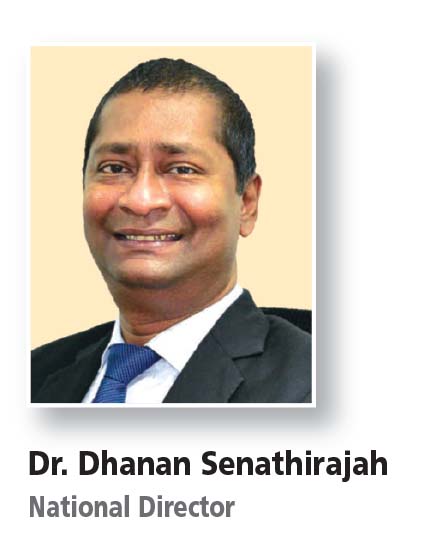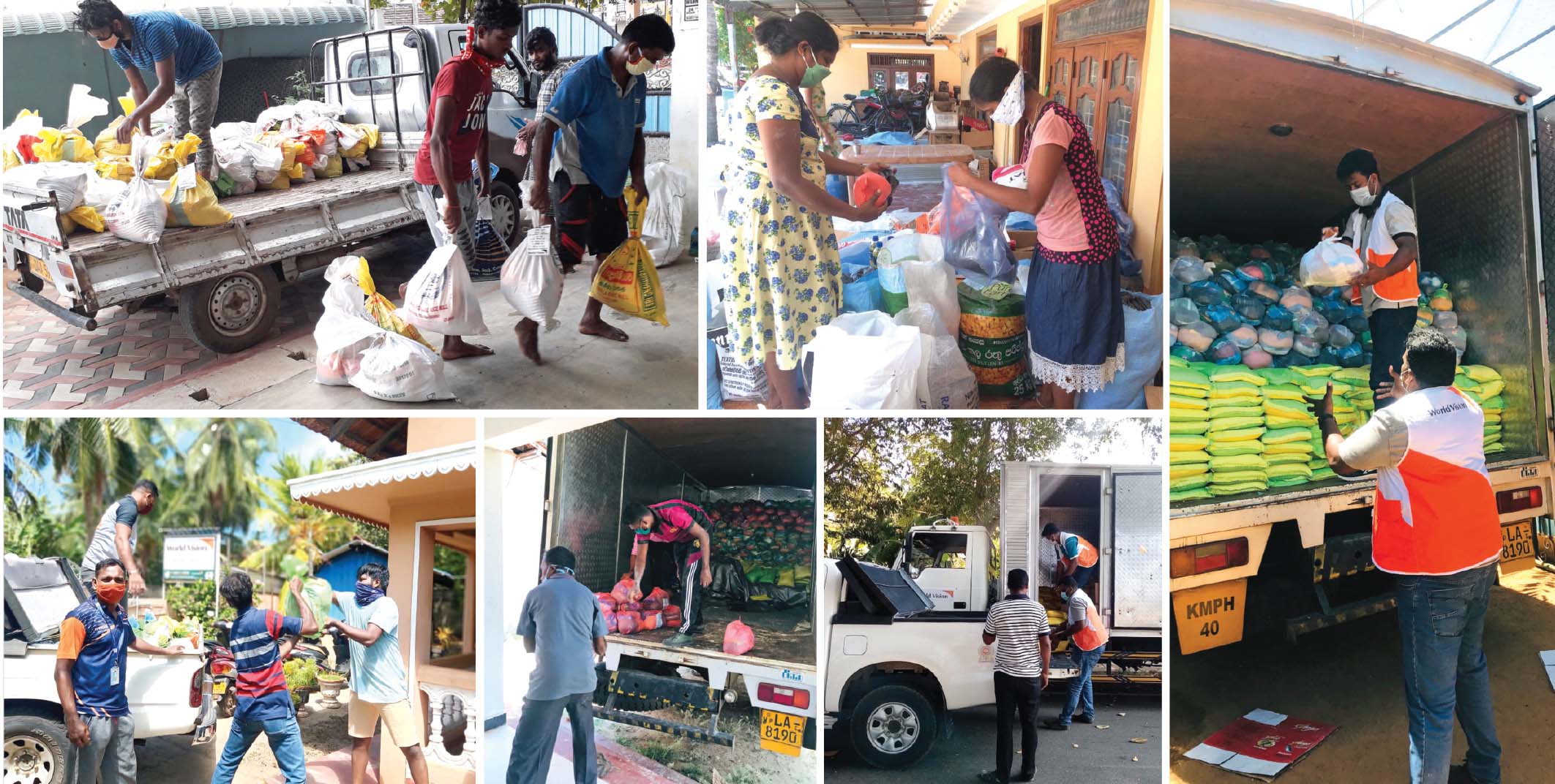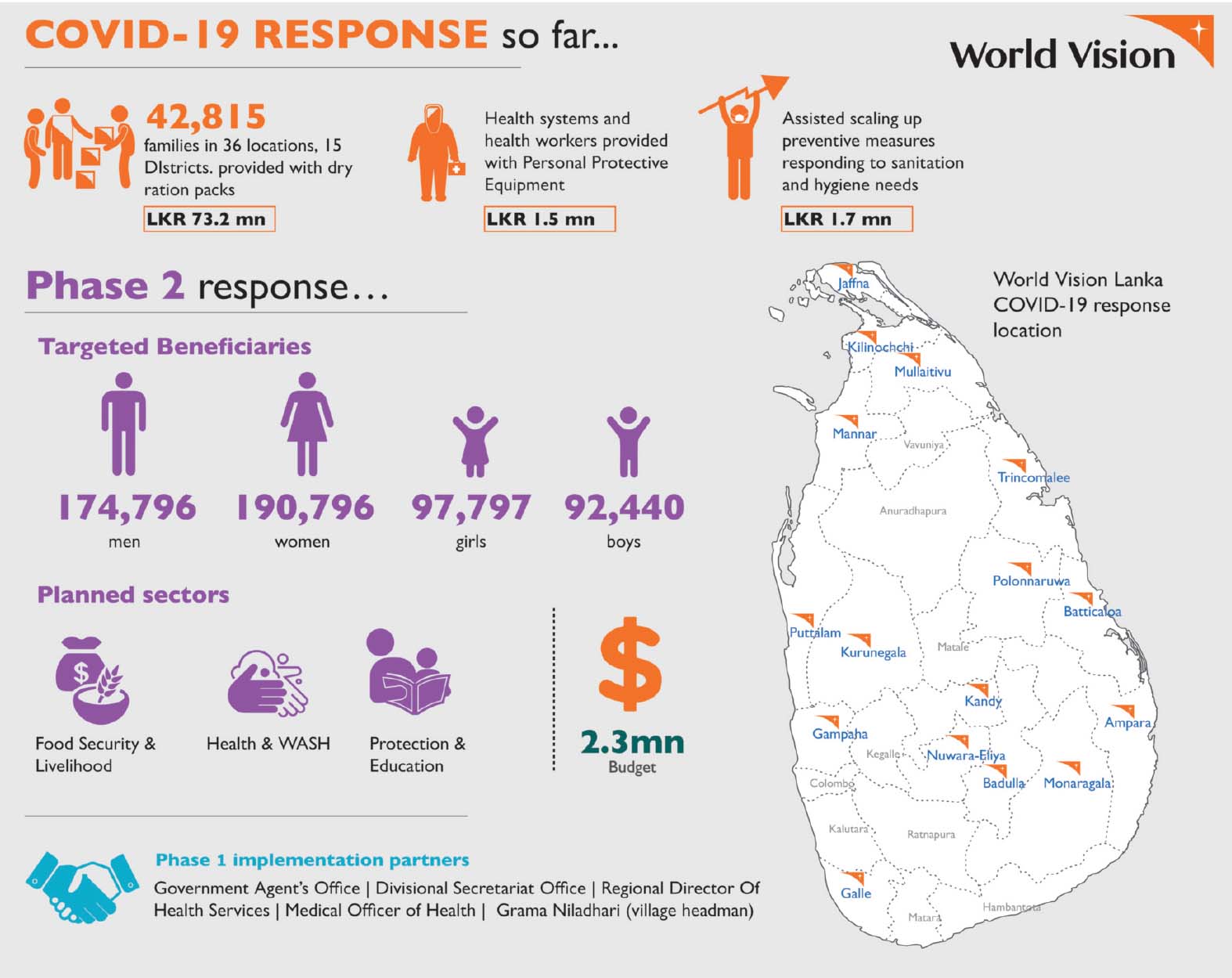WORLD VISION LANKA
Q: Could you provide an overview of World Vision Lanka (WVL)?
A: World Vision was established in Sri Lanka in 1977 and has served the nation during almost every national disaster for the past 43 years. It is a Christian relief and development organisation that began its work in China and South Korea 70 years ago.
World Vision is represented in nearly 100 countries, and its main goal is to improve children’s wellbeing and fullness of life. WVL maintains a presence in 34 locations in 16 districts in Sri Lanka through development programmes that impact over 100,000 children and their families.
While abiding by the principles of the Christian faith, the organisation works with all communities without any form of discrimination as it believes that everyone is created in the image of God.
Q: A report by World Vision indicates global estimates of increased violence against children during the lockdown. What steps has the organisation taken to address this situation especially in Sri Lanka?
A: According to the global report on COVID-19 aftershocks, close to 85 million children are at risk of physical, sexual and emotional violence particularly in the next three months.
Sri Lanka has witnessed an increased incidence of violence against children especially during curfew. WVL is working with the National Child Protection Authority (NCPA) in Sri Lanka to address this; and together, introducing positive parenting methods to help adults protect, care for and offer more attention to children.
WVL has established well functioning child development committees at the village level that oversee child protection. Village committees form a close network with the Children and Women’s Bureau of the Sri Lanka Police, and other supporting services.
During the curfew, WVL’s field teams coordinated with these structures at the grassroots level to monitor and ensure that children were cared for and protected.
Q: What are the major humanitarian needs in Sri Lanka due to the coronavirus outbreak?
A: COVID-19 is impacting not only health but pushing struggling families further
into poverty and vulnerability.
A comprehensive rapid assessment by WVL identified food security, livelihood recovery, child protection and education as four major needs. The results indicate that 44 percent of those surveyed have lost their livelihoods, and many families are resorting to borrowing money and pawning valuables to cope with the situation.
With the quality and quantity of food purchases declining, the survey reveals that 13 percent of children below five years no longer consume three meals a day.
Regarding education, although a number of schools have been conducting online lessons and broadcasting national educational programmes, many families do not have access to such facilities.
As the country relaxes its restrictions, we must be extremely cautious and continue improving preventive measures. Medical institutions should be strengthened further especially in rural districts and healthcare workers must be provided with personal protective equipment (PPE).
Q: In terms of sanitation and food supplies, how has WVL responded to providing relief to the less privileged?
A: Leveraging on its strong working relationship with the government, WVL overcame many challenges and provided dry ration packs to 42,815 of the most affected families in 36 locations covering 15 districts.
Q: The organisation launched a match funding initiative where ‘every rupee you give is doubled.’ Could you elaborate on this and its benefits to the public?
A: In the project’s first phase, we provided dry rations to over 6,400 families through the overwhelming support of corporates such as HSBC and London Stock Exchange Group (LSEG), foundations, individual donors and World Vision staff.
Moreover, a college batch of ’92 reached out and contributed a substantial sum to this cause. We are grateful to everyone who supported this initiative.
Q: So what’s ahead for the next phase of WVL’s response and recovery plan, to support affected communities and children?
A: Our next phase will focus primarily on food security and livelihood recovery, with a secondary focus on improving health and hygiene, child protection and education.
A US$ 2.3 million response is planned to cover 16 local districts, and will directly benefit nearly 400,000 adults and 200,000 children.
WVL has aligned its livelihood interventions with the government’s food security programmes and is encouraging household organic gardening to meet children’s nutritional needs.
Water, sanitation and hygiene (WASH) activities will focus on families by providing handwashing stations at schools, healthcare facilities and other public places, and promoting good hygiene practices.
Child protection work will continue with local authorities and contact details of the NCPA would be shared with households while working with the Ministry of Education to reach underprivileged children.
WVL will also continue to support the government’s coronavirus containment measures and help strengthen healthcare services.







